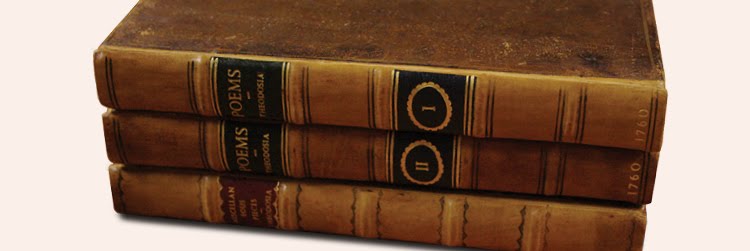Anne Steele, [Broughton], to Mary Wakeford, [Andover], undated.
Dear Amira
My manner of telling you the following Story may perhaps want apology, but the Subject needs no introduction.
There was in ancient times a Prince who reign’d over a vast extent of Land in perfect peace, his ample Dominions were in a flourishing state, his Subjects enjoy’d a profound tranquility, and paid him the most exact obedience: This Prince (tho’ powerful) was tributary to a great King whose Laws he was obligd to obey, but which were all Equitable, Wise, and Good; and calculated not only for the Honour of the Sovereign but every way conducive to the welfare of the dependant Prince & his posterity: in high favour with the King, and possessing all the Glory & prosperity his heart cou’d wish, what could be a happier situation? But alas! this weak mistaken Prince seduced by a wicked Outlaw (who had been expell’d the Kings Court for treasonable practices and sought his revenge in the ruin of this envy’d Favorite) fell a prey to his mischievous Arts, forfeited all his honours, & immunities, and his Life by black rebellion. Unhappy, ungrateful wretch! What did he deserve? - Death without mercy - to Death he was condemn’d; and in this dreadful sentence all his Children were included for so the Law requir’d, but by a ^strange^ surprizing Act of Goodness he was sav’d - the Kings only Son, and Partner of his Empire, to the amazement of all the Court - unsolicited, undesired - offer’d his Mediation - but how? To die in the Rebels stead - and did his Father accept the strange proposal? He did - and did the Son actually suffer? He did.- the most painful, shocking & ignominious Death.—read the heart-affecting Story in the Sacred volumn, where I had it - you have already read it - read it again - read & wonder, for Angels may forever! This Divine Redeemer you know rose again to Life and crown’d with new Glories return’d to his Fathers Court. There he now lives and reigns, and pleads with his Father the merit of his amazing Sufferings, not only for the first Offender but for all those of his Descendants who are truely sensible of their wretched condition, sincerely willing to recieve Mercy at his hand, and apply for it in his appointed Way: Such, he not only pardons but receives to his Favour, not only receives to Favour, but has bound himself by the most firm & inviolable engagements to bring them at last to his Fathers Court and place them in a state of Happiness far superior to that which their Predecessor by his rebellion had forfeited - this is not all he sends them a Guide, a person of consummate skill nearly related to himself; under the conduct of this wise and faithful Guide, and dilligently observant of his directions they cannot finally and fatally err. - but alas! How many obstinate rebels are there who desire not his assistance! Who refuse the gracious tenders of Pardon & Happiness, and blindly pursue their own utter ruin!—And such is Human weakness that even those penitent Delinquents who have sincerely apply’d for pardon, & found acceptance, are sometimes too apt to disregard the instructions of their Great Conductor, and step out of the way in search of vain amusement - Then their Guide griev’d and offended at their folly, withdraws from their sight a while, but leaves them not unnotic’d; he speaks, but while the interposing cloud hangs heavy round them, they hardly know the Voice which warns them of their danger and bids them turn again to the path of Duty. Trembling they turn, and mourn their guilty wanderings, till their Gracious Conductor again appears, dispels the oppressive gloom, supports their timerous steps, and tells them they are safe – If their path is plain & easy, and they meet with no difficulties or distresses, they are sometimes apt to sit down and fall asleep, forgetful of their journey and its Glorious End; but their ever-faithful Guide awakens them with the voice of kind reproof and bids them be active & vigilant.
If they are terrify’d with apprehensions of danger, he speaks peace and composure to their troubled Minds, in the assurance that they have an Omnipotent Friend, who will never leave them nor forsake them - If their Spirits sink discouraged with the difficulties of the way, he animates them to run with patience the race set before them, and directs them to look to their Great Forerunner & Example, who for the Joy set before him endured the Cross despising the shame, and is now seated at his Fathers right hand waiting their arrival, ready to receive them into the Mansions of Glory & Felicity, where they shall be ever with their Lord! - You and I my dear Amira are I hope among these Travellers, let us endeavour to encourage each other in the journey by talking of the Glorious Person who has wrought such wonders of surprizing Love, of the Mansions of Eternal delight which he has prepar’d for his faithful followers, and of the unspeakable inconceivable joys we hope for in dwelling forever in his Presence!—and may we be very careful that we do not offend our kind, our faithful Guide by negligence and heedless folly!—sensible of our own weakness may we observe his directions with attentive care, and follow them with constant dilligence, till under his unerring Conduct we are brought at last safe to the blissful Residence of our Glorious King, our Exalted Redeemer!—join my Dear Sister Amira the wishes of
Your affectionate
Silviana
Text: STE 3/10/xv Steele Collection, Angus Library, Regent's Park College, Oxford. No address page. For an annotated version of this letter, see Timothy Whelan, gen. ed., Nonconformist Women Writers, 1720-1840 (London: Pickering & Chatto, 2011), vol. 2, ed. Julia B. Griffin, pp. 289-01.
